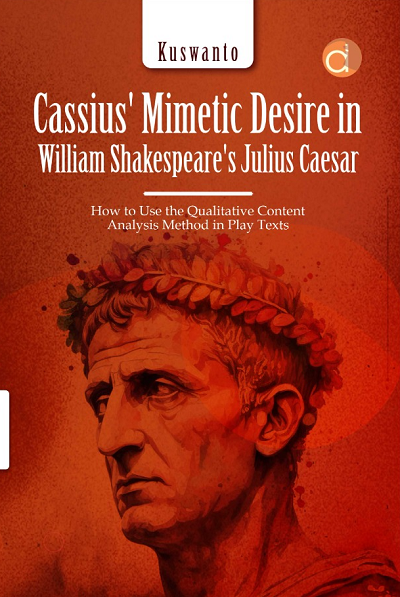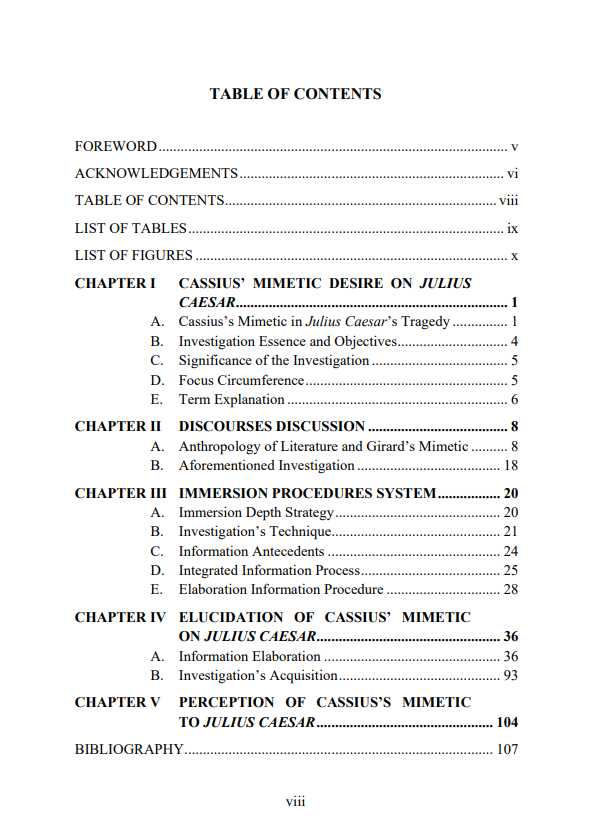
Home / E-Book Cassius’ Mimetic Desire in William Shakespeare’s Julius Caesar
E-Book Cassius’ Mimetic Desire in William Shakespeare’s Julius Caesar
Beli Buku
Sinopsis Buku
E-Book Cassius’ Mimetic Desire in William Shakespeare’s Julius Caesar
The term “imitation” or “mimesis” has been widely used. All creatures, including humans, use mimesis as a means of survival. Mimetic is widely regarded as a result of imitation in all forms of cultural transmission (language, tradition, and values). It indicates that mimeticity pervades all aspects of human life, yet it is rarely investigated thoroughly. Nevertheless, imitation has been developed in literary works to the point that each line, when interpreted in terms of play texts, has a profound, complete, and sometimes even negative significance. Humans are always in need of something to keep them alive. They imitate nature or another person to obtain what they want. As a result, in theory, mimesis desire is the primary motivation of people and hence a phenomenon prevalent in all facets of society. All terms linked to mimesis are typically associated with imitation. Some people may not desire impulsively but rather imitate the desire of others. The desire does not originate in itself or in the item, but in a third person. In other words, between a desire and its target, there is always some amount of social mediation. Being imitative or mimetic might thus be defined as mediated want: a desire that is never totally someone’s own. That is, imitators do not have the same desire as models. Nevertheless, due to the mimetic process (mimetize), this desire creates a medium for having the same desire as a model’s desire.
E-Book Cassius’ Mimetic Desire in William Shakespeare’s Julius Caesar ini diterbitkan oleh Penerbit Deepublish Digital






